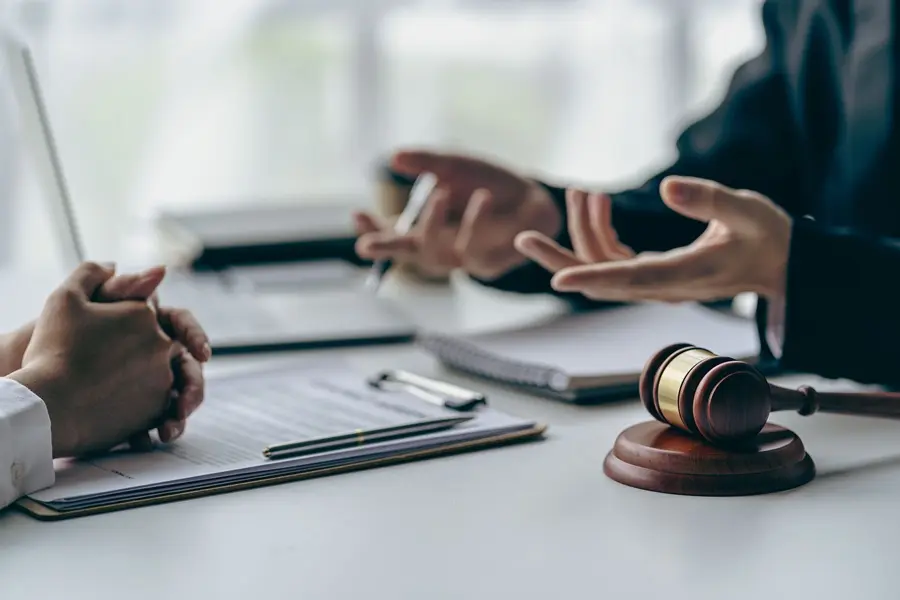Table of Contents
Injuries caused by falling objects can have serious consequences. Whether you are walking through a construction site, shopping in a store, or simply passing by a building, falling objects can strike without warning. These accidents often lead to significant medical bills, lost income, and lasting physical or emotional trauma. In Mississippi, victims of falling object injuries have the right to seek compensation if the incident was caused by negligence.
If you or a loved one has been injured by a falling object, understanding your legal rights and options is essential. This guide explores common scenarios where these accidents occur, what steps to take afterward, and how a personal injury lawsuit can help you secure justice.
Common Causes of Falling Object Injuries
Falling object injuries can happen in a variety of settings. Some of the most common scenarios include:
- Construction sites: Tools, materials, or equipment falling from scaffolding or elevated platforms pose a frequent risk to workers and passersby.
- Retail stores: Poorly stacked merchandise or unsecured shelves can result in items falling and striking customers.
- Warehouse environments: Workers in warehouses are at risk from improperly loaded shelves or equipment failure.
- Public spaces: Falling tree limbs, building debris, or poorly maintained infrastructure can lead to injuries in outdoor or urban areas.
- Transportation incidents: Cargo falling from trucks or improperly secured loads can cause accidents on the road.
These accidents are often preventable, which means that someone’s negligence may be to blame. Determining the cause of your injury is an essential step in building a strong case.
Proving Negligence in Falling Object Cases
To file a successful personal injury claim, you must show that another party’s negligence caused your injuries. Proving negligence involves demonstrating the following:
- Duty of care: The responsible party had an obligation to act in a way that ensured your safety. For example, property owners must maintain safe conditions, and employers must follow workplace safety regulations.
- Breach of duty: The party failed to uphold this obligation. This could include ignoring safety standards, failing to secure objects, or neglecting to repair known hazards.
- Causation: The breach of duty directly led to the accident and your resulting injuries.
- Damages: You suffered measurable harm, such as medical expenses, lost income, or pain and suffering.
Establishing negligence often requires evidence, such as photographs of the accident scene, witness statements, safety reports, or expert testimony.
Steps to Take After a Falling Object Injury
If you’ve been injured by a falling object, taking the right steps can protect your health and strengthen your claim. Here’s what to do:
- Seek medical attention immediately: Even if the injury seems minor, some symptoms may not appear right away. A doctor’s evaluation creates a medical record that links your injury to the accident.
- Document the scene: If you are able, take photographs of the area where the accident happened, the object that caused your injury, and any visible hazards. Note details like the time, location, and conditions.
- Report the incident: Notify the property owner, manager, or employer about the accident. If it occurred in a public space, consider contacting local authorities to file a report.
- Collect witness information: Gather contact details for anyone who saw the accident. Their statements can support your version of events.
- Preserve evidence: Keep any physical evidence, such as the object that caused the injury, or clothing damaged during the incident.
- Consult an attorney: An experienced personal injury lawyer can evaluate your case, guide you through the legal process, and negotiate on your behalf.
Types of Compensation Available
Victims of falling object injuries may be entitled to various types of compensation. The exact amount will depend on the circumstances of your case, but common forms of compensation include:
- Medical expenses: Reimbursement for hospital stays, surgeries, medication, and ongoing rehabilitation.
- Lost wages: Compensation for income lost during recovery, as well as diminished earning capacity if the injury prevents you from returning to work.
- Pain and suffering: Monetary damages for physical pain, emotional distress, and reduced quality of life.
- Property damage: Repair or replacement costs for personal belongings damaged in the accident.
- Punitive damages: In cases of egregious negligence or misconduct, punitive damages may be awarded to punish the responsible party.
Calculating the full extent of your damages is a key part of building a successful claim. An attorney can help ensure that no potential costs are overlooked.
Challenges in Falling Object Claims
Filing a lawsuit for falling object injuries can be complex. Common challenges include:
- Identifying the responsible party: Determining who is liable may require investigating multiple parties, such as property owners, contractors, or employers.
- Proving negligence: The defense may argue that your injury was caused by your own actions or that the falling object was an unavoidable accident.
- Gathering evidence: Time-sensitive evidence, like video footage or maintenance records, may become unavailable if not secured promptly.
Overcoming these challenges often requires legal expertise and resources. A personal injury lawyer can manage the details of your case while you focus on your recovery.
Mississippi Laws That May Affect Your Claim
Mississippi’s legal framework includes several rules that may impact your case:
- Comparative negligence: Mississippi follows a pure comparative negligence system. If you are found partially at fault for your injury, your compensation will be reduced by your percentage of responsibility.
- Statute of limitations: You have a limited time to file a personal injury lawsuit. In Mississippi, the deadline is typically three years from the date of the accident.
- Premises liability: Property owners have a legal obligation to maintain safe conditions for visitors. The standard of care owed may vary depending on whether you were an invitee, licensee, or trespasser.
Understanding these laws is essential to building a strong case. A lawyer familiar with Mississippi’s personal injury statutes can help ensure that your claim is filed correctly and on time.
The Role of Legal Representation
Navigating a personal injury lawsuit can be overwhelming, especially when recovering from a serious injury. A personal injury attorney can:
- Investigate the circumstances of your accident.
- Identify all liable parties and their insurance providers.
- Collect and preserve evidence to support your claim.
- Calculate the total value of your damages.
- Negotiate with insurance companies for a fair settlement.
- Represent you in court if a settlement cannot be reached.
Having legal representation can improve your chances of securing the compensation you need to recover and move forward.
Conclusion
Falling object injuries can cause lasting physical, emotional, and financial harm. If you’ve been injured due to someone else’s negligence, you have the right to seek justice. By taking the appropriate steps and working with a qualified personal injury lawyer, you can hold the responsible parties accountable and obtain the compensation you deserve.
Don’t let the aftermath of an accident overwhelm you. Reach out to a personal injury attorney in Mississippi to discuss your options and begin the process of rebuilding your life.

